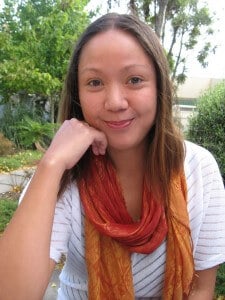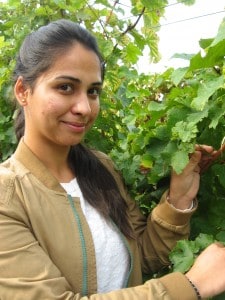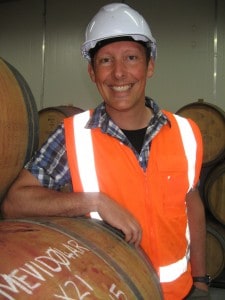New Zealand is gaining a reputation as a leading educator with overseas graduates seeking further study opportunities as a springboard into employment in the wine industry.
Offering an on-campus option for its graduate diplomas in oenology and viticulture for the first time this year, EIT enrolled some 18 postgraduates in the inaugural one-year winemaking programme, and two-thirds are overseas graduates.
The international students are from countries that include China, India, the USA, Japan and the Philippines. One, who has lived in the UK for the last 20 years, hails from the Rhone Valley in France.
Graduate diplomas are sought-after qualifications in the wine industry, particularly for those who want to continue working while studying part-time and by distance.
However, programme coordinator Dr Carolyn Russell points out that demand for on-campus study has also been building in recent years, especially among would-be students from overseas. EIT, she says, made major changes to the programmes so it could add the more time-intensive study option.
New Zealand’s growing reputation as a quality wine producer is among the reasons overseas students cite for choosing the on-campus option. They are also seeking hands-on learning environments where they can ask questions directly of their lecturers and explore a wide variety of varietals, wine styles and winemaking techniques in a winemaking region.
After graduating, many hope to gain experience by securing positions with New Zealand wine companies. In some cases, the internationals also hope to make this country their long-term home.
The graduate diploma requires 10 days’ work experience – a deep-end stint for those who haven’t previously worked in a winery or on a vineyard. For the oenology students, that has meant working the vintage.
“It tends to be less intense for the viticulture students as they are able to stage their work experience throughout the academic year,” Russell says. “The local industry has been really good at taking students on for voluntary work.”
Oenology student Darlene Tolentino was surprised by the physical demands of working vintage and two weeks after the experience she was still sporting blackened fingernails and bruising from plunging the cap.
“The work is challenging,” the Filipino says of her time at Sileni Estates, “but every day you are learning something that you wouldn’t normally cover in the classroom.”
After graduating from the University of the Philippines with a Bachelor of Science (Agriculture) majoring in horticulture, Tolentino was passed over for jobs that went to applicants with experience. She worked in a call centre, first as an agent and then as an executive recruitment officer, until her brother, working for AgResearch in Dunedin, suggested she look at opportunities in this country.
She applied for a work visa but horticulture wasn’t included in Immigration New Zealand’s skilled shortage list and she found herself working in a confectionery factory in Oamaru.
“It was frustrating,” she agrees, “having heard that there were many opportunities in New Zealand horticulture. I decided to start again, studying and practising in a related field of expertise.”
The 33-year-old’s young son is living with his grandmother in the Philippines but Tolentino wants to raise him in New Zealand – “a peaceful country” – so is hoping to find suitable work here when she finishes her graduate diploma studies.
Formerly from Avignon, Laurent Busy completed a degree in English, Spanish and international business management before going on to work in financial services in the UK. Turning 40, he reviewed his future and concluded that his line of work had become “a bit boring”. He resolved to move abroad for winemaking studies rather than regret what might have been.
“I needed a change of air and was looking at my options for the next 25 years,” he says. “The new world is shaking the cobwebs of how to do things in the wine world.”
Travelling in New Zealand three years ago, Busy made a pilgrimage to Craggy Range to visit the producer of Syrah Block 14 2006, a “classic beautiful Rhone-style wine” with extraordinary aromas “just jumping and dancing in the glass”.
His choice of a country in which to study went to this favourable impression and other connections forged with New Zealand. “The hands-on learning, small size and good facilities offered by EIT combined with the programme, were the big draw,” he says of his search for an appropriate course in an English-speaking country.
Looking ahead to future employment opportunities and lacking a science background, Busy completed a bridging course in chemistry before progressing to the graduate diploma class.
Studying in Hawke’s Bay has broadened his appreciation of the region’s winemaking potential.
“It’s a wine area which I like and believe in. It’s not just one grape and it’s not just one place – I love that it’s diverse. The different winemaking styles and techniques are here and you can try more than one thing.”
Wanting to gain work experience in New Zealand after completing his studies, Busy is keen to establish contacts in the industry.
“I’m focusing on production through the course but am also considering the operations and business side, to use or complement my existing skills and experience.”
From Hamachal Pradesh province in northern India, Shivani Ghai gained her Master in Biotechnology degree from Punjab University but still found it hard to secure a job in a related field.
Her parents supported her dream to explore opportunities overseas and she and her father brainstormed ideas and researched educational programmes offered by educators world-wide.
Although India has little by way of a wine culture, the pair felt winemaking offered Ghai scope for future employment. They chose New Zealand for her study because of its small population, lack of corruption and the safe environment it provided for the 24-year-old.
“The decision was very right,” Ghai says. “I came alone and knew no-one in Napier but was very well-supported by EIT’s International Centre and felt no differently than if I were on campus at my university in India.
“I am living as a homestay with an Indian family in Hastings. I started the programme two weeks late because of a hold-up with my visa, but I found everyone very good in helping me catch up. It’s a family-friendly environment in New Zealand and at EIT.”
Although working vintage at Trinity Hill was “really hard work”, she enjoyed every aspect of the experience and says the winery staff were “brilliant”.
Like her two classmates, Ghai plans to gain as much experience as possible in New Zealand once she has graduated. In the meantime, she has suggested her father explore the possibility of establishing a family wine venture in Himachal Pradesh where, she says, the climate is like New Zealand’s.
It could, she believes, prove suitable for growing wine grapes.



